This project conceives, tests and establishes a new type of community amenity space that combines essential services with opportunities for social and cultural activity. It has been co-produced, co-designed and will also be constructed with the community within which it is situated. Mereside is a peripheral social housing estate suffering from multiple indicators of social deprivation, located in the northern English seaside town of Blackpool.
Through an embedded and active approach to community engagement we worked with the residents and stakeholders of Mereside to identify potential projects, activism and advocacy that reimagined and tested new concepts for social and civic amenity. The local library was identified as an asset but one that was fragile due to exceptionally small premises that limited access and activity. Fuel poverty and access to laundry facilities was also recognised along with a lack of space for the local housing association to conduct sensitive 1:1 consultation with residents. This initial consultation process also identified a long-term vacant premise that had most recently been used as a housing office which could be utilised as the site for the project.
Involving the community directly in the development of the proposal and sharing the decision-making process was critical, but the design language of architecture can be difficult to understand for non-expert participants. Conducting consultation workshops in the actual space crucially allowed the participants to visualise what can be done. Interacting physically with the site by taking building elements apart, utilising existing furniture, and even drawing on walls as a performative design tool gave freedom to the participants to imagine future uses and formal ideas. As well as previously identified functions, the consultations revealed the need for more flexible spaces for arts and community events. As a variety of uses were needed, not all compatible to one another, a degree of adaptability of use was necessary. An interactive architectural model of the space that could be taken apart and rebuild during the design discussions was also devised, allowing those with no design experience to test and visualise ideas.
In the final stages of the design process, the model, illustrations and axonometric drawings showing the variety of use were key in demonstrating to community and stakeholders the ways in which the building can be adapted for different activities at different times.
Engaging with the community in the design decision-making process ensured that the project stakeholders and residents shared a feeling of mutual ownership of the neighbourhood amenity and created greater community cohesion through collaborative action. This will be reinforced during the construction stage of the project, scheduled for April and May 2022, in which volunteers and residents are invited to demolish, re-build, fabricate and decorate the spaces and the furniture. A key aspect of this experience will be an engagement with the digital fabrication facilities at the University of Central Lancashire, introducing participants to new forms of contemporary craft and making. The project will reduce a reliance on services that are currently only available in the town centre and provide a local social and cultural asset. Mereside Library/Laundrette rethinks and proposes a new typology that empowers the community through an active participation in the act of making place.
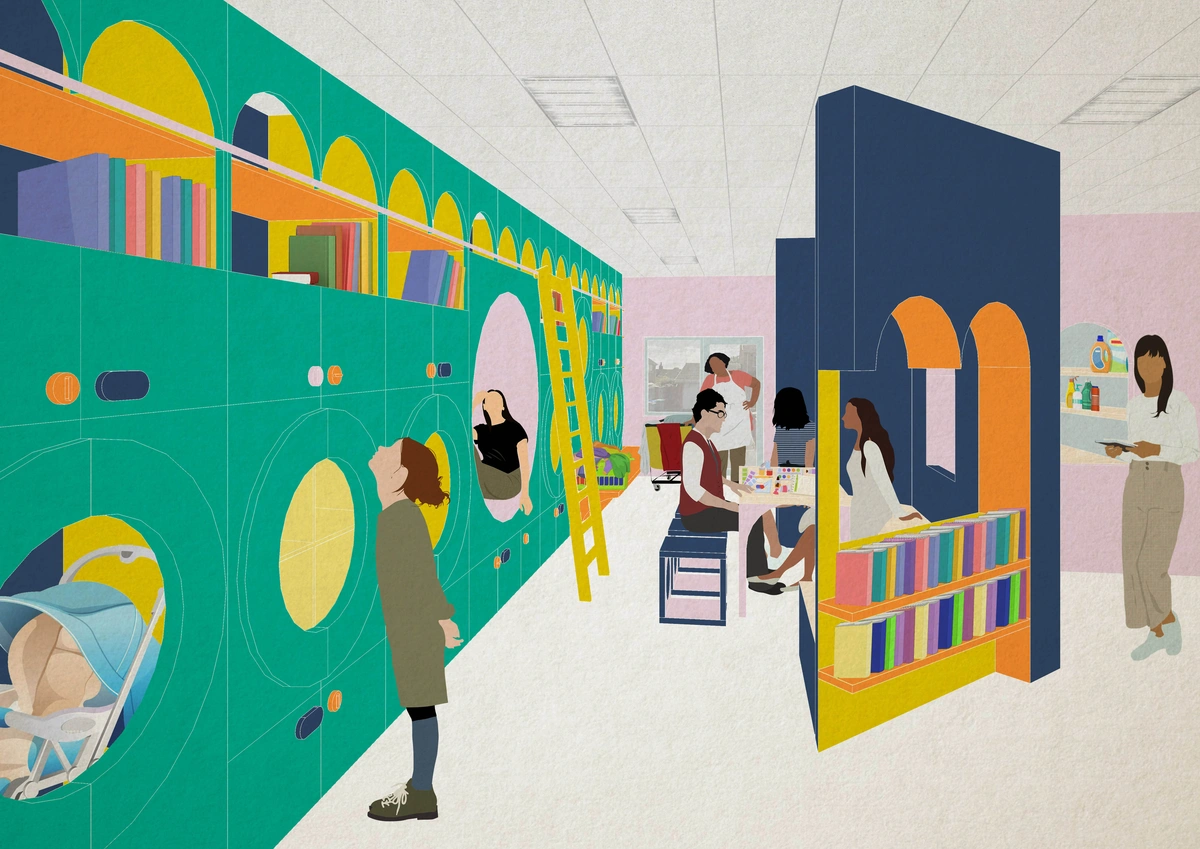
Illustration of the laundrette, storage wall and activity space
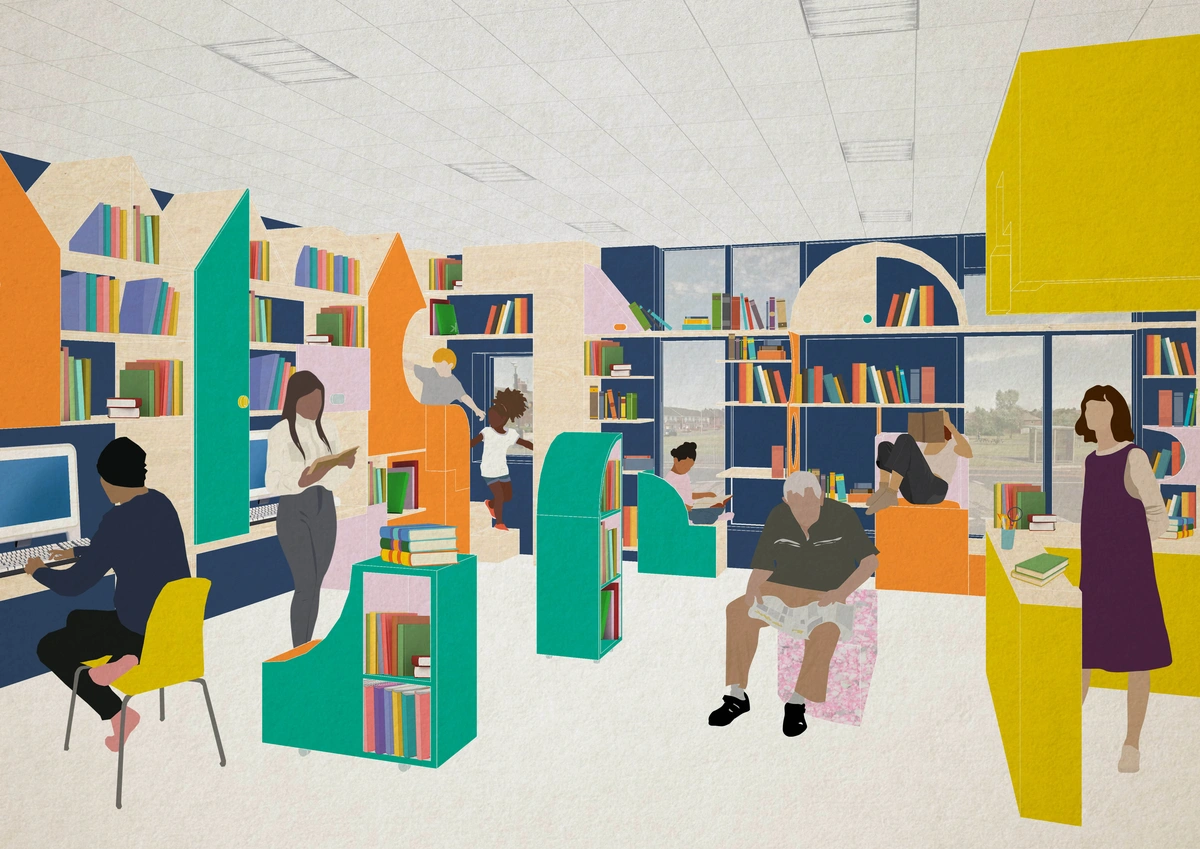
Illustration of the core library and community space
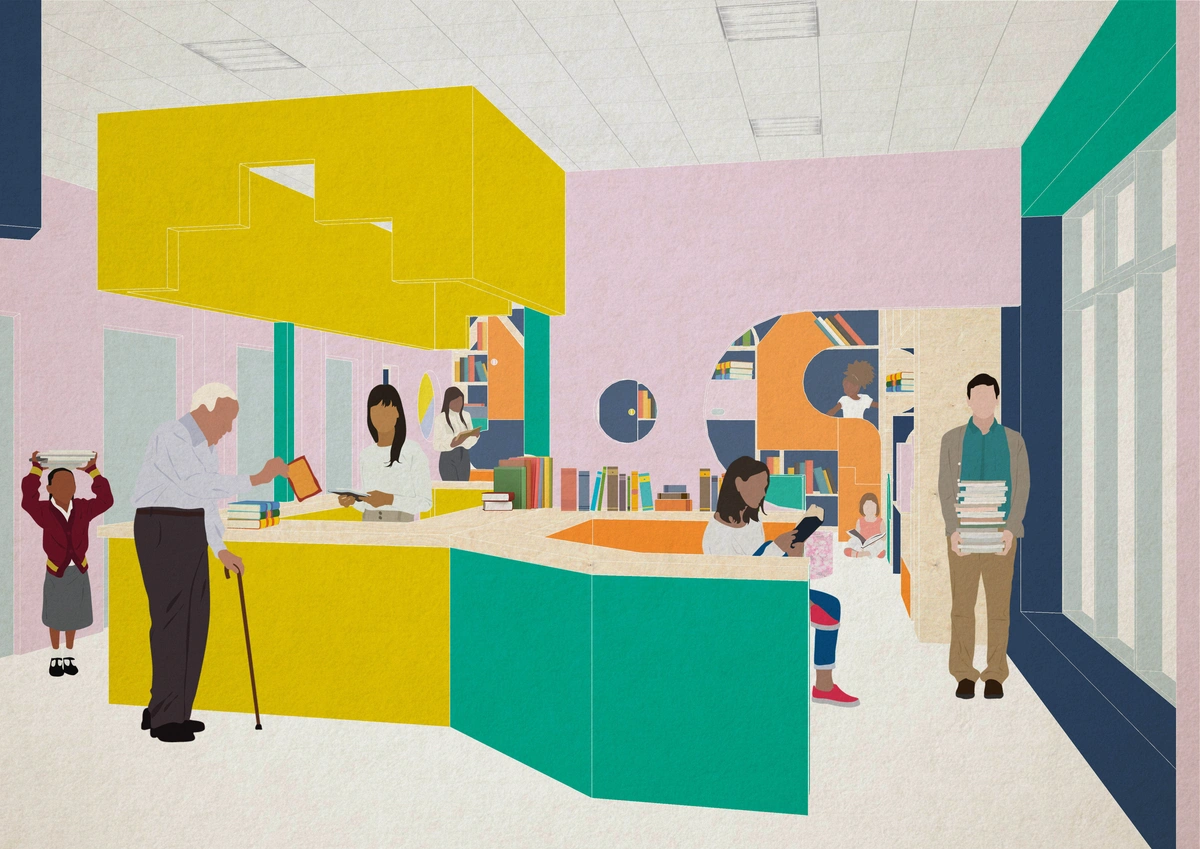
Illustration of the library/laundrette reception space
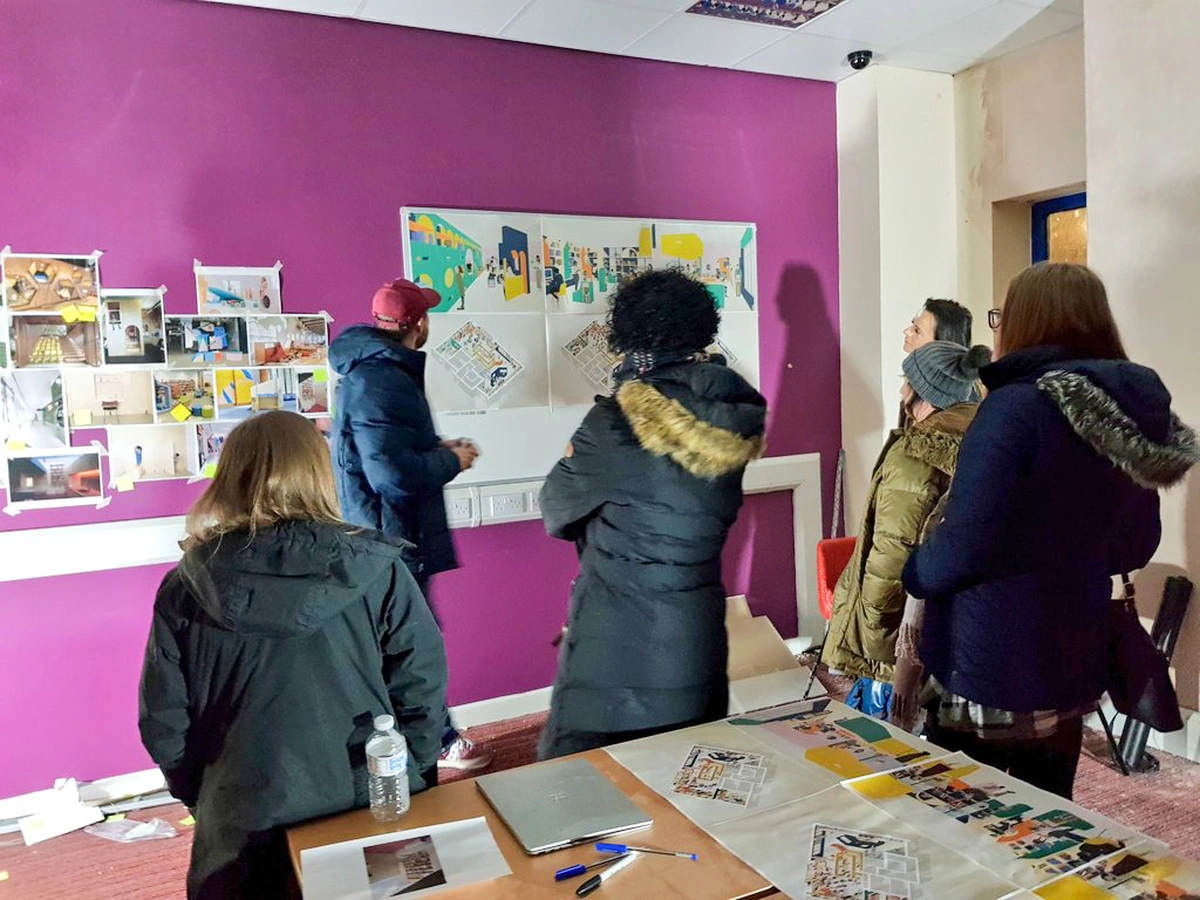
Photograph of the participatory design process in the project site
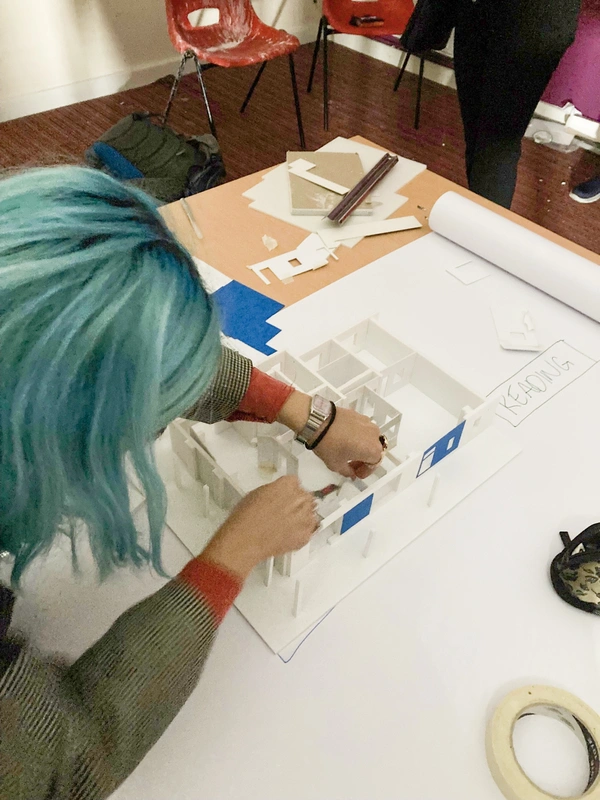
Photograph of the interactive model being used during one of the consultation workshops
The team consists of Leftcoast Arts, an independent arts organisation based in Blackpool using the delivery of participatory art and design projects to engage with marginalised communities within the town. Architect/academic Lee Ivett and architectural designer/academic Ecaterina Stefanescu worked with Leftcoast to deliver a co-design process with community residents and stakeholders. Lee is the founder of award-winning participatory design and research practice Baxendale which utilises the act of making as a tool for engagement and neighbourhood capacity building. Ecaterina is the co-founder of Estudio ESSE, a design studio that create self-built and self-initiated interventions which question the existing cultural, social and economic dynamics of place. They are both developing the project through their academic roles at the Grenfell-Baines Institute of Architecture, testing new modes of empathic design and utilising access to digital fabrication technologies to deliver the project.
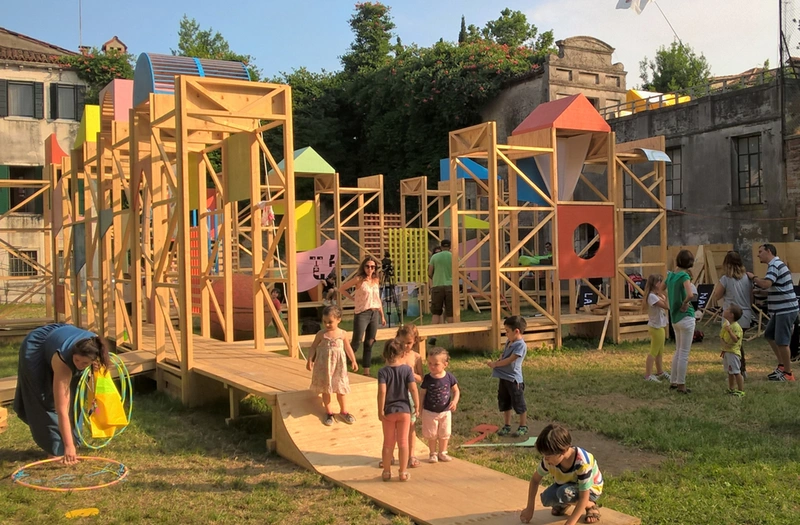
Self-build public space used to prototype new forms of community activity. Produced and exhibited by Baxendale and Wave Particle at the 2018 Venice Biennale.
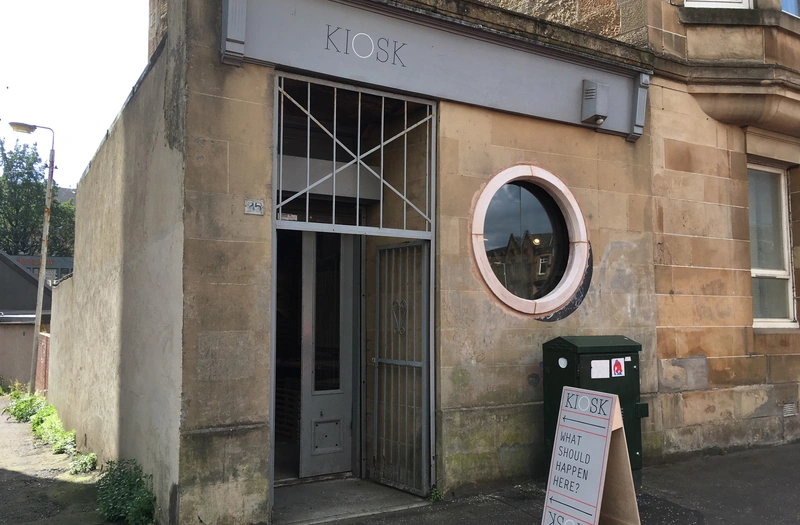
A prototype for a new form of micro-civic community space in Glasgow by Baxendale.
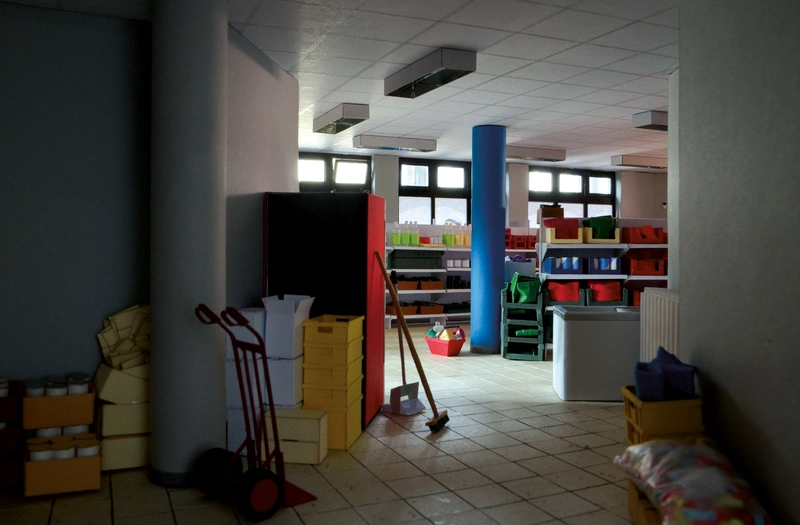
Model-making as research and documentation; 1:20 model of an existing Romanian Shop in Berlin by Ecaterina Stefanescu.